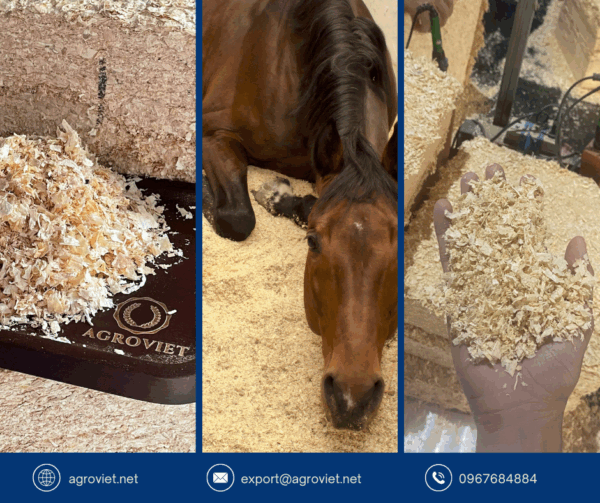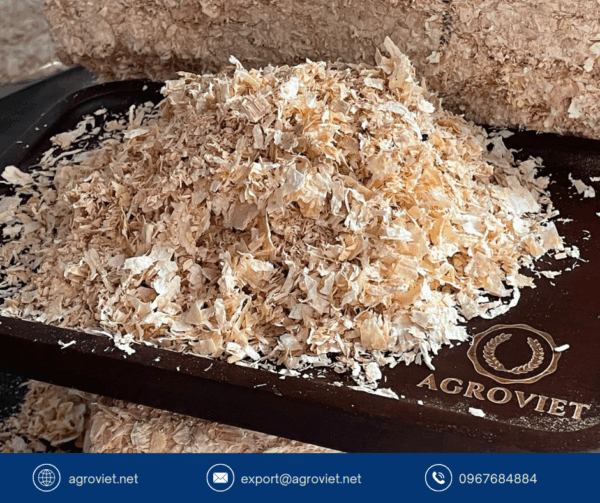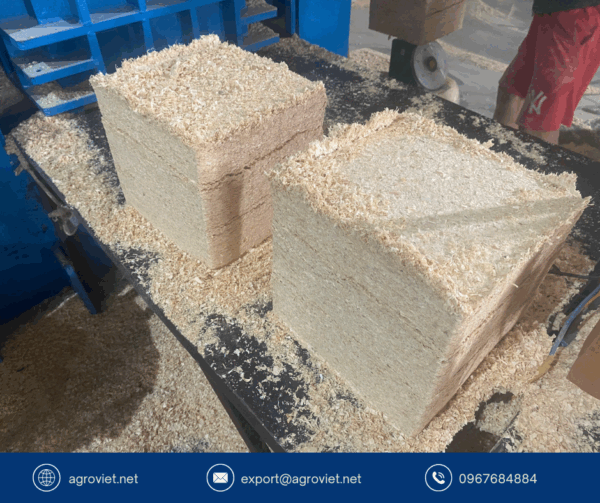Bedding-Related Stress and Immunosuppression in Livestock: Why Comfort Matters More Than You Think
Introduction to Livestock Stress and Immunity
Stress in livestock, such as dairy cows, poultry, and swine, can significantly impair immune function, increasing susceptibility to diseases and reducing productivity. Bedding quality plays a critical role in animal comfort, directly influencing stress levels and immune health. Poor bedding, such as wet or abrasive materials, contributes to physical and environmental stress, leading to immunosuppression. Clean wood shavings, with their superior comfort and absorbency, are essential for mitigating these risks. This post explores the link between bedding, stress, and immunosuppression in livestock, drawing on research from the National Institutes of Health, and highlights why wood shavings are vital for animal welfare.
Watch this: https://www.youtube.com/watch?v=mj_M1t-tyG0
Understanding Bedding-Related Stress
Livestock housed in uncomfortable environments experience chronic stress, which triggers the release of cortisol, a hormone that suppresses immune responses. Wet, dirty, or hard bedding causes discomfort, leading to reduced lying time, skin irritation, and lameness. For example, dairy cows require 10-14 hours of lying time daily for optimal health, but uncomfortable bedding reduces this, increasing stress. According to the NIH study, poor bedding conditions elevate cortisol levels by up to 20%, weakening immunity and increasing disease risk in livestock like broiler chickens and pigs.
How Stress Leads to Immunosuppression
Chronic stress disrupts the immune system by reducing the production of white blood cells and antibodies, making livestock more vulnerable to infections. In poultry, stress from wet litter can exacerbate diseases like coccidiosis, with infection rates rising by 30% in poorly managed environments. In dairy cows, uncomfortable bedding contributes to lameness and mastitis, costing farmers $100-$300 per case. Swine housed on hard or wet surfaces show increased susceptibility to respiratory infections, with morbidity rates up to 15% higher in stressful conditions, as noted in the NIH research.
The Role of Wet and Dirty Bedding
Wet and dirty bedding, such as straw or low-quality sawdust, creates an environment that promotes stress and pathogen growth. Excess moisture from urine or water spills fosters bacteria like Escherichia coli and fungi, which can cause skin infections and respiratory issues. Wet bedding also increases ammonia levels, irritating mucous membranes and further compromising immunity. The NIH study found that livestock housed on wet bedding had a 25% higher incidence of infections compared to those on dry, comfortable materials like wood shavings.
Why Wood Shavings Are Critical for Comfort
Wood shavings are an ideal bedding choice for livestock due to their high absorbency, softness, and ability to maintain a dry, hygienic environment. They absorb up to 200% of their weight in moisture, reducing wet spots that cause discomfort and harbor pathogens. Their coarse texture provides cushioning, encouraging lying time and reducing physical stress on joints and skin. Unlike straw, which retains moisture, or sand, which can be abrasive, wood shavings create a comfortable, low-stress environment that supports immune health across species, from poultry to cattle.
Scientific Evidence Supporting Wood Shavings
The NIH study emphasizes that bedding quality directly impacts livestock welfare and immunity. Dry, comfortable bedding like wood shavings reduces cortisol levels by up to 15% compared to wet or hard surfaces, enhancing immune function. In broiler chickens, wood shavings lowered ammonia levels by 30%, reducing respiratory stress and infection rates. For dairy cows, comfortable bedding increased lying time, correlating with a 10% reduction in lameness and mastitis cases. These findings highlight wood shavings as a science-backed solution for minimizing stress and immunosuppression.
Key Benefits of Wood Shavings for Livestock Bedding
-
Moisture Absorption: Keeps bedding dry, reducing pathogen growth and ammonia-related stress.
-
Comfort and Cushioning: Encourages lying time, reducing physical stress and joint issues.
-
Pathogen Control: Limits bacterial and fungal proliferation, supporting immune health.
-
Cost-Effective: Durable and absorbent, requiring less frequent replacement than other materials.
-
Versatility: Suitable for various livestock, including poultry, dairy cows, and swine.
Consequences of Poor Bedding Choices
Neglecting bedding quality has severe consequences for livestock health and farm economics. Wet, uncomfortable bedding increases stress, leading to immunosuppression and higher disease incidence. In poultry, this can result in reduced weight gain and mortality rates of 5-10%. In dairy cows, poor bedding contributes to lameness and mastitis, reducing milk yield by up to 20%. Swine on inadequate bedding show increased aggression and health issues, lowering productivity. The economic impact includes higher veterinary costs and losses estimated at $50-$200 per animal annually, depending on the species.
Practical Tips for Using Wood Shavings
To optimize the benefits of wood shavings, farmers should:
-
Use untreated softwood shavings, such as pine, to avoid chemical irritation.
-
Maintain a bedding depth of 4-6 inches for poultry and 15 pounds per stall for dairy cows.
-
Regularly turn or replace bedding to prevent compaction and maintain dryness.
-
Ensure proper ventilation to enhance moisture control and reduce ammonia levels.
-
Source high-quality, dust-free shavings to minimize respiratory irritation.
Complementary Strategies for Reducing Stress
In addition to wood shavings, farmers can implement these practices to minimize stress and support immunity:
-
Ventilation: Ensure adequate airflow to reduce ammonia and humidity in housing.
-
Nutrition: Provide balanced diets with adequate protein and micronutrients to bolster immune function.
-
Space Management: Avoid overcrowding to reduce social stress and disease transmission.
-
Regular Health Checks: Monitor livestock for early signs of stress or illness to prevent outbreaks.
-
Sanitation: Clean and disinfect housing between production cycles to eliminate pathogens.
Economic and Welfare Impacts
Investing in wood shavings improves livestock welfare and farm profitability. Comfortable, healthy animals exhibit better growth rates, milk production, and reproductive performance. For example, dairy cows on comfortable bedding produce up to 10% more milk, while broilers show improved feed conversion ratios. Reduced disease incidence lowers veterinary costs and prevents production losses. Wood shavings also support sustainable farming, as they are compostable, reducing environmental impact and aligning with consumer demand for ethical livestock management.
Addressing Challenges with Wood Shavings
While wood shavings are highly effective, challenges include dust from low-quality products and sourcing consistent supplies. Farmers should select dust-free shavings and work with reputable suppliers to ensure quality. Compaction in high-traffic areas can reduce effectiveness, so regular litter turning is essential. Proper storage of shavings in dry conditions prevents mold, maintaining their hygienic properties. With these measures, wood shavings remain a practical, high-impact bedding solution.
Conclusion
Bedding-related stress significantly contributes to immunosuppression in livestock, increasing disease risk and reducing productivity. Clean wood shavings, with their excellent absorbency and comfort, are a proven solution to create a low-stress, hygienic environment. Supported by research from the NIH, wood shavings reduce cortisol levels, enhance immune function, and prevent infections across livestock species. By prioritizing wood shavings and adopting complementary management practices, farmers can improve animal welfare, boost profitability, and ensure sustainable livestock production.
Read more: https://vietnambestwood.com/general/mixed-wood-shavings-livestock-bedding/
